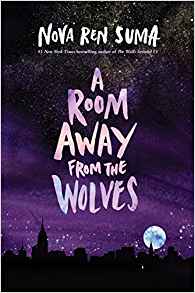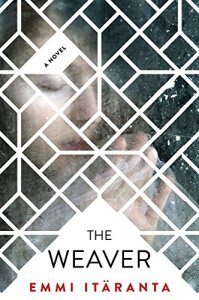Paul Di Filippo Reviews Beyond the Outposts: Essays on SF and Fantasy 1955-1996 by Algis Budrys
 Beyond the Outposts: Essays on SF and Fantasy 1955-1996, Algis Budrys (Ansible Editions/Lulu.com, 978-0-244-56705-7, $22.50, 378pp, trade paperback) 2020.
Beyond the Outposts: Essays on SF and Fantasy 1955-1996, Algis Budrys (Ansible Editions/Lulu.com, 978-0-244-56705-7, $22.50, 378pp, trade paperback) 2020.
The field of fantastika could never have reached its current flourishing condition, nor hope to continue forcefully, without the efforts of the small presses. These firms throughout the history of the genre and into the present have preserved many older works from oblivion and also offered homes to worthy living writers whom the Big Five do not care to publish.
In the realm of preservation, David Langford’s one-man operation Ansible Editions has done yeoman work, saving from the voracious trash heap of history many worthwhile fannish and professional texts. One of Langford’s major accomplishments was to produce a three-volume set of Algis Budrys’s critical columns from The Magazine of Fantasy and Science Fiction. (See links at https://ae.ansible.uk/?id=printbks.) And now he has followed that up with a compendium of Budrys’s miscellaneous essays from various sources.
The half-life of literary critics is perhaps even shorter than that of the fiction writers upon whom they comment. In the year 2020, once potent names such as James Agee, Cyril Connolly, and Clifton Fadiman are faded remnants of what they once were. Even giants like Edmund Wilson ring few bells.
In the SF field, perhaps because we have had fewer critics (and those have been homegrown and intimate with the readers and writers), each one has been more consequential and significant and perhaps better remembered. But even so, the name of Algis Budrys—slightly tarnished in some eyes due to his problematical dealings with Scientology in the waning years of his career—is hardly a household word. Yet he was too smart and vital and perceptive a storyteller and reviewer and critic to be allowed to vanish. So Langford’s efforts are crucial and appreciated.
This meaty volume assembles nearly four dozen essays that range from personal memoirs to instructive how-to lessons; from insightful reviews of individual books to cogent analyses of the entire yearly output of the field; from Pauline-Kael-level observations on films to editorial and printerly considerations of the practical side of manufacturing a book. Throughout all of these pieces, there is one constant: Budrys’s distinctive voice, which is affable, inviting, non-haughty, erudite yet down-to-earth, companionable and yet insistent on the maintenance of high standards and unlimited aspirations for SF. As he says in “Bridges to Verity”, “The whole secret of my orientation as an essayist on books is that I speak as if I had just been asked about the book by a friend. As part of my contract with my friend, what I say about the book is nothing more than I would say if I had read it only on my own account. And absolutely nothing less.”
As the subtitle indicates, the oldest essay here (they come at us in chronological order) dates from sixty-five years ago, while the newest hails from a mere twenty-five years in the past. Thus they form a portrait of a vanished era. But one should not make the mistake of thinking these pieces irrelevant. Sure, there are some bits concerned with extinct practices and folks no longer prominent. But the genre matters that Budrys is concerned with are eternal and even topical.
Consider the very first essay, titled “Or Thwim”:
The attitude which I am here to speak against is that which contends that fiction should educate, and that writers of fiction are obligated to expose the injustices and inequities of our society. Stories and writers engaged in doing so are labeled “sensitive”, “perceptive”, “significant”, and, in critical terms, “great”. Stories and writers not devoted to these things are labeled “entertainment”, “hack”, and, in criticism, “good stories, but they don’t say anything”. In recent years, this feeling has assumed major importance within the science fiction field, and a good many people now require of a story that it “say something” before it can even be considered to be qualified for “greatness”. This attitude has become so entrenched at times that what the story “says” assumes paramount importance, and the actions, motivations, and statements of the characters, as well as the construction of the plot, no matter how clumsy, are all disregarded in critical analysis. One recent reputation, in particular, has been built on little more than the author’s willingness to “shatter taboos”, with little regard for the fact that the future societies he constructs are flatly impossible, the future languages his characters use violate the laws of linguistic evolution, and the biology he quotes is monstrously inaccurate, to say nothing of the fact that these “taboos” are taboos only in our current society and not in the ones the writer postulates.
What has happened, in short, is that an increasing number of nominal “stories” in the field have become fictionalized essays, the construction of which justifiably (for its purposes) neglects the rigorous structural demands of the kind of science fiction story which, until recently, was held to be the highest refinement of the field.
My god, could anything be more pertinent to SF in the year 2020? Elsewhere, we find Budrys praising the influx of women writers into the field, and considering the ways big tent-pole movies such as Star Wars reconfigure the old landscape of prose science fiction. All still topical items today.
But perhaps the most timeless part of this book is when Budrys performs a dissection on the innards of science fiction as a mode of writing, when he examines the toolkit of our genre and strives to limn how one can master the task of writing superlative SF. He does this at frequent intervals even in simple reviews. But there are essays where this is his central theme, and the most illuminating are those he wrote specifically for this very magazine, here assembled under the rubric “On Writing: The Locus Columns”. Very few critics, even those who were also professional fiction writers, have devoted so much analytical thought to the secrets of composing SF—and then been willing to share their cogitations and deductions.
Here we encounter Budrys’s semi-famous formula for a story:
There is a thing which readers will recognize as a story every time. It has seven parts: (1) A protagonist with a (2) problem in a (3) context in which his (4) efforts to solve the problem are a succession of revelatory increasing failures which lead up to a (5) precipitating event which makes inevitable a (6) solution followed by a (7) reward. Stories with villainous protagonists go as follows: (1) A protagonist with a (2) problem in a (3) context in which his (4) efforts to solve the problem are a series of revelatory increasing successes which lead up to a (5) precipitating event which makes inevitable a (6) failure followed by (7) punishment. Clearly, these are the same thing.
And also in these Locus columns is where he lays down a manifesto of sorts.
SF is the hardest kind of writing there is. There’s plenty of easy SF – witless adventure, facile notion, pop science montage, social primer. You can make a career out of that. If the western were still the predominant pop lit form, you could make the same career of that. If you make that choice, make it coolly, the same way a good carpenter does, and be the best carpenter you can. There’s money in it now, and there may be money in it as long as you need.
If popular demand swings toward sports or sea stories, perhaps you’ll be able to detect the change and swing with it. If you never felt you were truly an SF writer, it won’t even bother you.
But SF in its essentials is something else. It has the unique capability of exploring the chaotic universe realistically, because in its essence it is divorced from the constraints of transient myth which did not operate on your parents, will not operate on your children, but operates so overwhelmingly on you. SF in its essence demands that you know that, that you struggle against it as effectively – which means as knowingly – as possible, and that you come to understand what is important to people forever, as distinguished from all those conceptions which insidiously disguise what is important to you forever. That’s doing art. Art is uncomfortable. Art is dog work.
Like many people, Budrys was a master of cognitive dissonance, a composite personality. He could advocate for a utilitarian nuts-and-bolts approach to writing SF, and then demand the presence of numinous inspiration. He labeled himself just another worker in the trenches, but insisted his novel Rogue Moon was the apex of SF. Resident at the beating heart of a much smaller field than exists today, he was on first-name comradely terms with giants like Asimov and Heinlein, and yet did not hesitate to call out their failings.
Let’s take a look at “Hardcover”, the short story by Harlan Ellison in the May Inside. I’m going to be deliberately unfair in one facet of my criticism, and I therefore chose this story because it is not only readily available and perfectly exemplary of the dialectic approach, but also was written by a friend of mine who will understand that this in no way reflects my opinion of his basic ability.
This volume, while perhaps not quite so essential as the other collections of his essays, provides the most fun and wisdom pertaining to science fiction that you can buy this year, and Langford and Ansible deserve to sell thousands of copies.
 While you are here, please take a moment to support Locus with a one-time or recurring donation. We rely on reader donations to keep the magazine and site going, and would like to keep the site paywall free, but WE NEED YOUR FINANCIAL SUPPORT to continue quality coverage of the science fiction and fantasy field.
While you are here, please take a moment to support Locus with a one-time or recurring donation. We rely on reader donations to keep the magazine and site going, and would like to keep the site paywall free, but WE NEED YOUR FINANCIAL SUPPORT to continue quality coverage of the science fiction and fantasy field.







